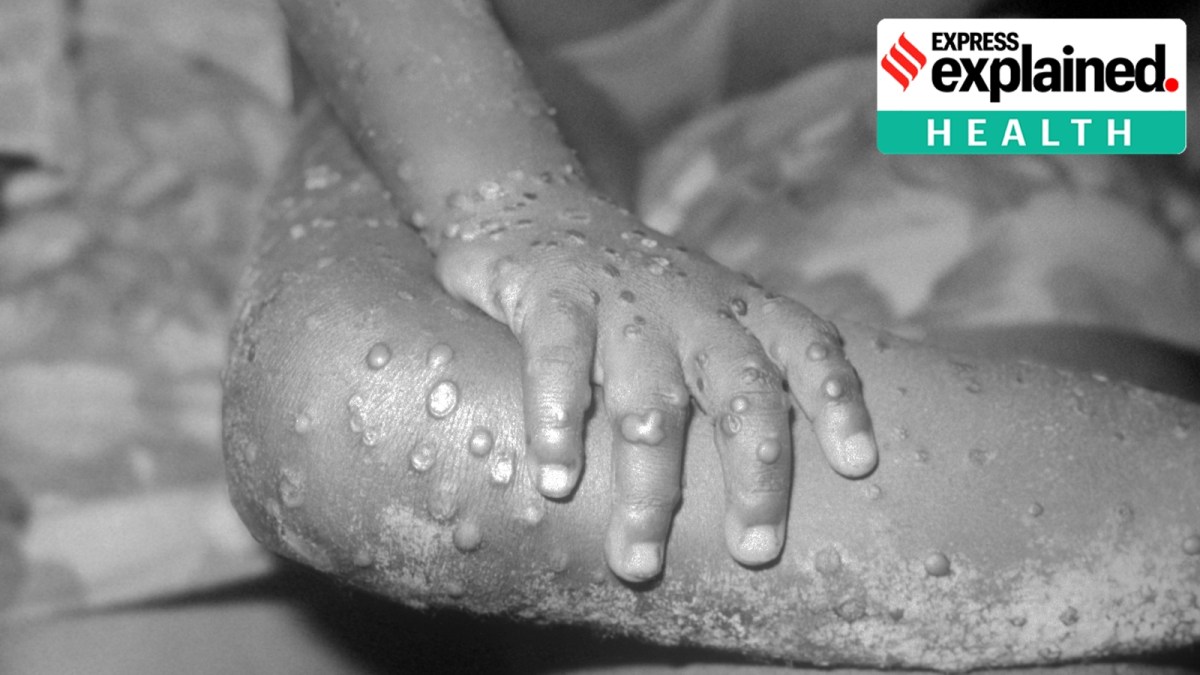Why Congo’s latest Mpox outbreak is concerning
A new form of Mpox — a viral disease which was formerly known as monkeypox — that spreads more easily has triggered Congo’s largest outbreak yet.

The Democratic Republic of the Congo (DRC) is struggling to contain its biggest Mpox outbreak. Scientists say a new form of the disease detected in a mining town might more easily spread among people.
Since January, the DRC (also known as Congo) has reported more than 4,500 suspected Mpox cases and nearly 300 deaths, numbers that have roughly tripled from the same period last year, according to the World Health Organization (WHO).
Congo recently declared the outbreak across the country a health emergency. Cases have been reported in neighbouring Republic of Congo as well.
A new phase of Mpox
An analysis of patients hospitalised between October and January in Kamituga, eastern Congo, suggests recent genetic mutations in Mpox are the result of its continued transmission in humans; it’s happening in a town where people have little contact with the wild animals thought to naturally carry the disease.
“We’re in a new phase of Mpox,” said Dr Placide Mbala-Kingebeni, who heads a lab at Congo’s National Institute of Biomedical Research, which studies the genetics of diseases. The lesions reported by most patients are milder and on the genitals, Dr Mbala-Kingebeni said, making the disease trickier to diagnose. In previous outbreaks in Africa, lesions were mostly seen on the chest, hands and feet.
He also said that the new form seems to have a lower death rate. Most people were infected via sex, with about a third of Mpox cases found in sex workers. It was not until the 2022 global emergency of Mpox that scientists established the disease was spread via sex, with most cases in gay or bisexual men. In November, WHO confirmed sexual transmission of Mpox in Congo for the first time.
The looming danger
There are two kinds, or clades, of Mpox, which is related to smallpox and is endemic to Central and West Africa.
Clade 1 is more severe, and can kill up to 10% of people infected. Clade 2 triggered the 2022 outbreak; more than 99% of people infected survived.
Dr Mbala-Kingebeni and colleagues said they have identified a new form of Clade 1 that may be responsible for more than 240 cases and at least three deaths in Kamituga, a region with a significant transient population travelling elsewhere in Africa and beyond.
Dr Boghuma Titanji, an infectious diseases expert at Emory University, said the new mutations “suggest the virus is adapting to spread efficiently in humans and could cause some pretty consequential outbreaks”.
Barely any Mpox vaccines and treatments have been available in Congo. The country’s minister of health has authorized the use of vaccines in high-risk provinces, and officials are in talks with donor countries like Japan to help buy the shots, said Cris Kacita Osako, coordinator of Congo’s Monkeypox Response Committee.
WHO’s emergencies chief, Dr Michael Ryan, said last week that despite the ongoing spread of Mpox in Africa and elsewhere, “there has not been a single donor dollar invested”.